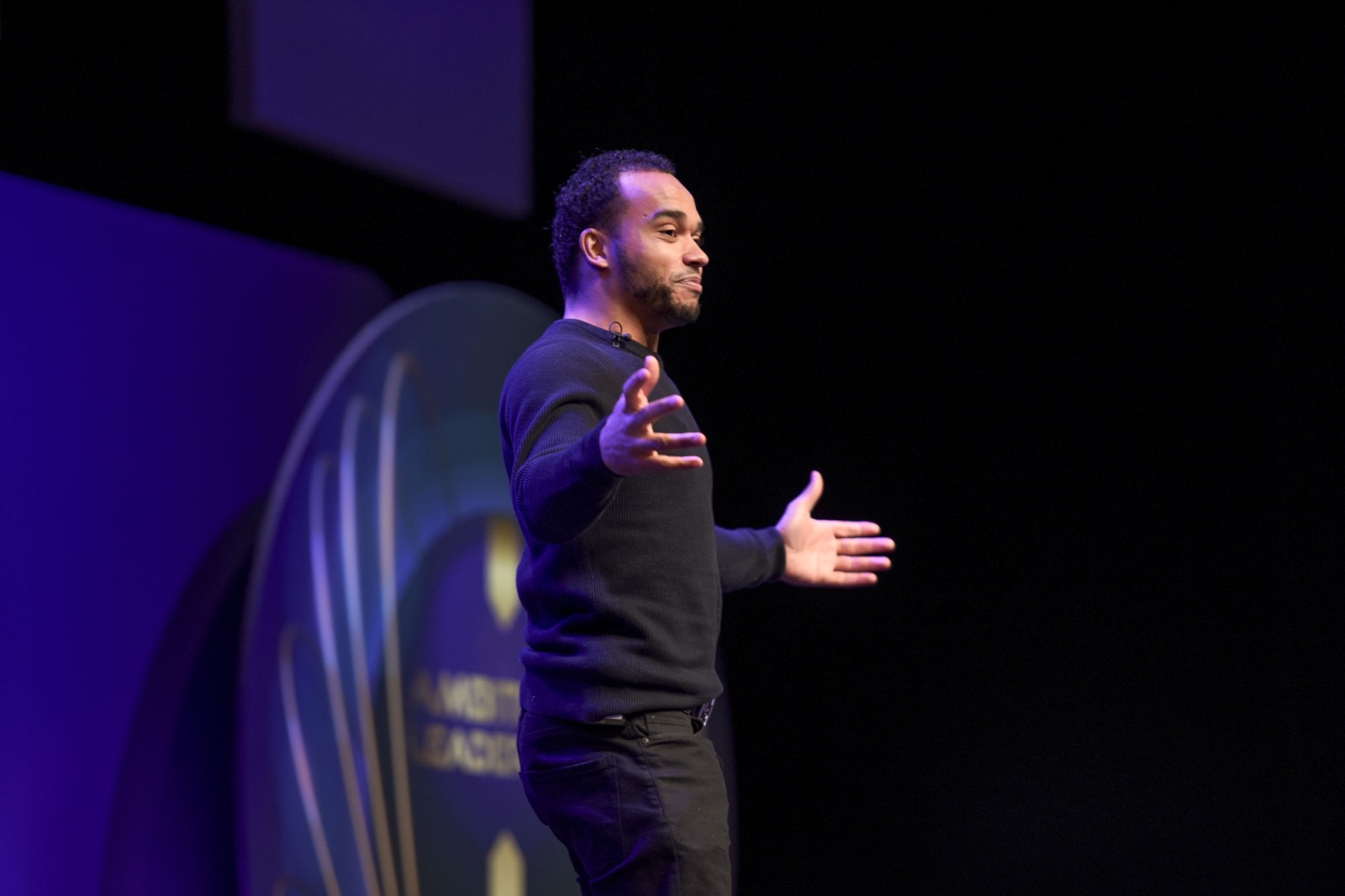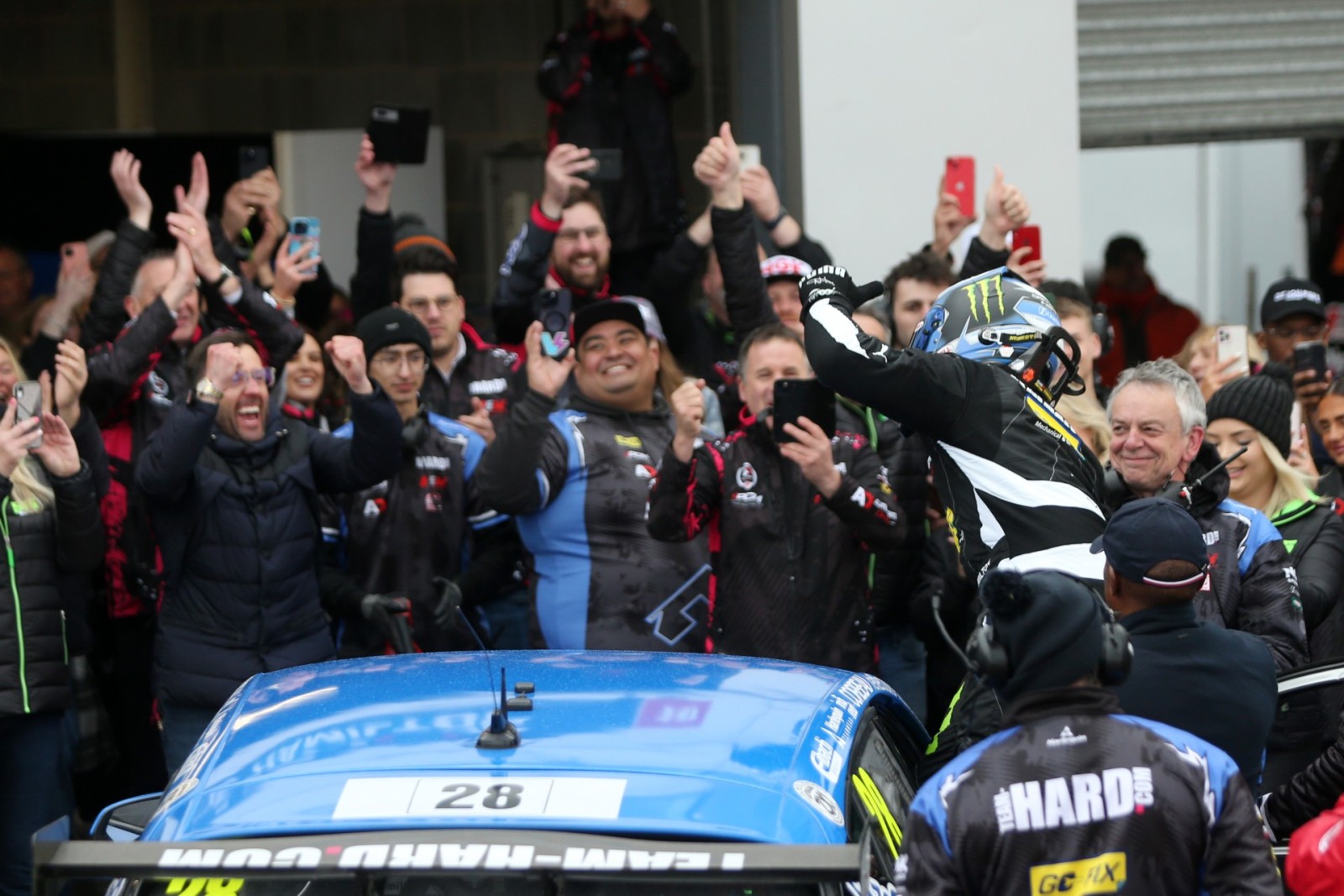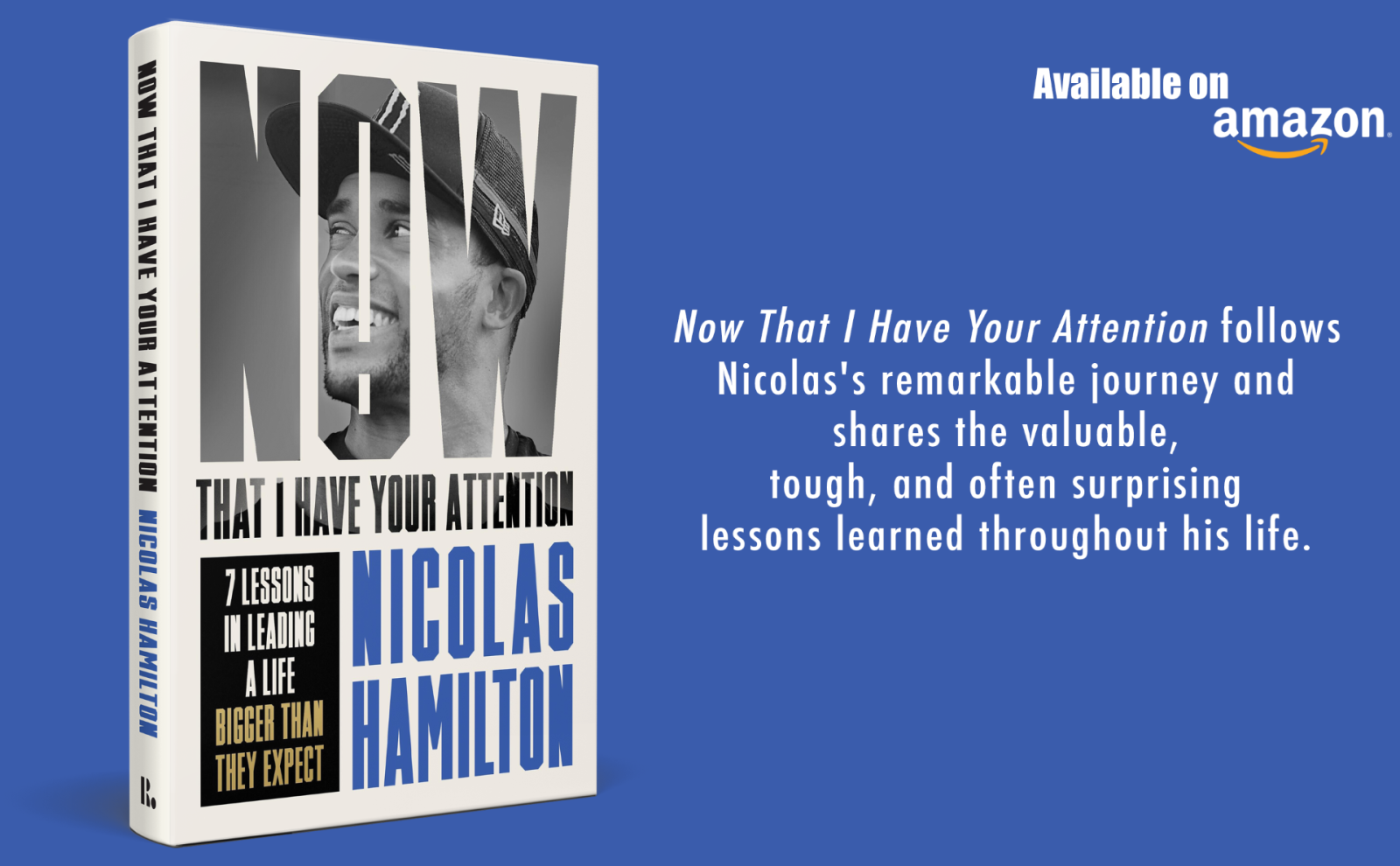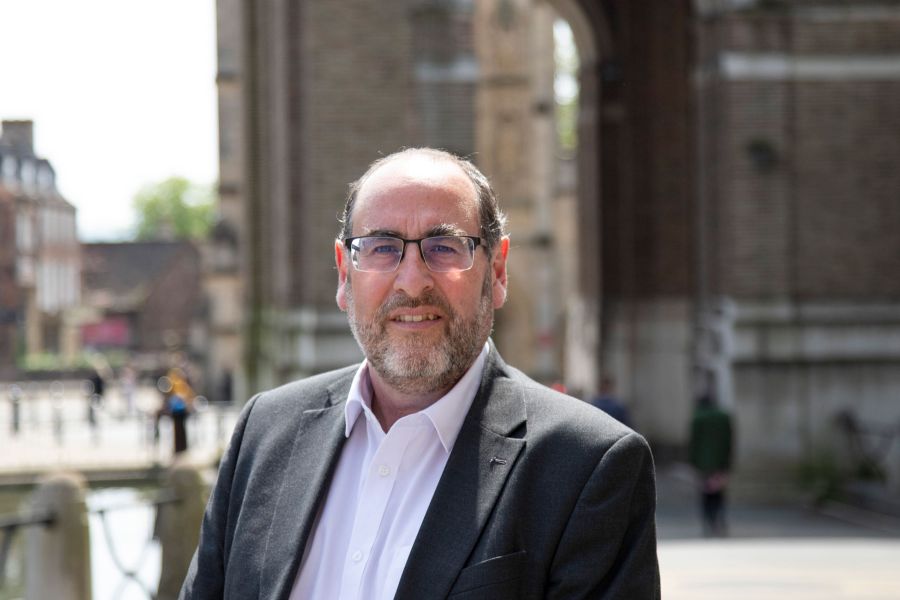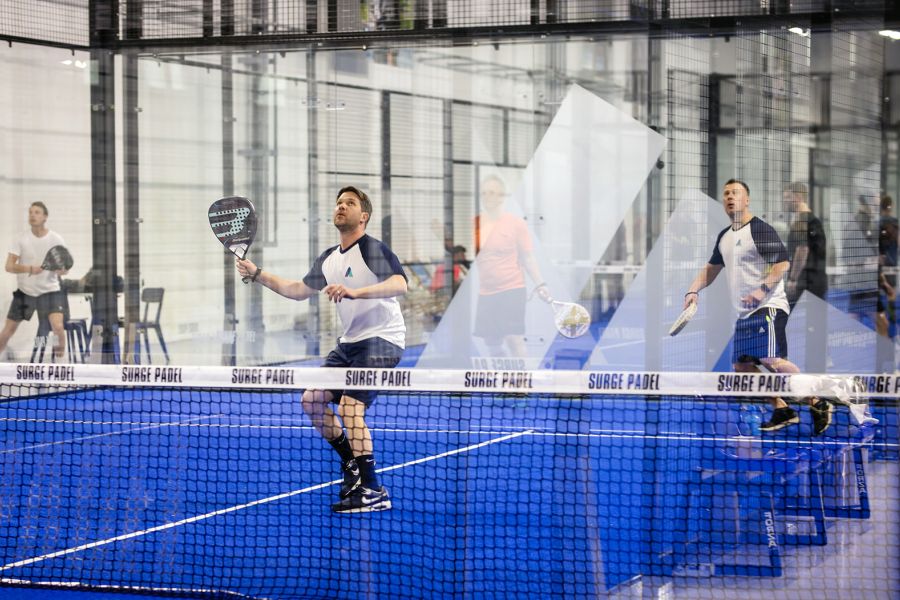Driving the disability agenda
Nicolas Hamilton
Nicolas Hamilton, this year’s speaker at the BPAA Annual Dinner, has successfully moved out from the shadow of his world-famous brother and overcome huge odds to successfully compete in the tough and uncompromising world of motorsport.
Cerebral palsy is a cruel disease affecting around 160,000 people in the UK – around
1 in 400 of the population. It can affect movement, co-ordination and muscle tone, and around half of those living with the condition will be reliant
on a wheelchair to get about.
In the case of Nicolas Hamilton, his parents were warned that their baby son would never walk and that his eyesight was extremely poor – and would further deteriorate as he got older.
Fast forward to the age of 17 and, after years of hard work and determination, Nicolas had defied all the odds, and progressed from being wheelchair-bound to walking unaided. And, if that was not enough of an achievement, he had also persuaded his parents to allow him to follow his paternal half-brother Lewis onto the race track.
After demonstrating his ability, he was given the opportunity to race in the highly competitive Renault Clio Cup series in 2011… that first season becoming the subject of a BBC documentary entitled “Racing with the Hamiltons: Nic in the Driving Seat”.
Nic survived this baptism of fire to progress to the British Touring Car Championship in 2015. In 2023, he scored a career best finish in Round 1 of the Championship at Donington Park of P6, further raising the bar for disabled drivers in the upper echelons of British motorsport.
At around that time, Nic discovered he had another talent: as a motivational speaker. That strand to his career portfolio has now expanded to the point where he is talking to over 40 audiences each year about the challenges he has faced down – not only as a driver with physical disabilities, but as one of the relatively few drivers from an ethnic minority background at this level
of the sport.
We catch up with him to find out what motivates him… and how he is now using his experiences and influence to improve the lives of others.
So what got him into public speaking?
I pretty much fell into it. A guy contacted me and said, “Nic, would you come and do a ‘fireside chat’ for a company?” I’m used to being interviewed, so I felt very comfortable being interviewed on stage.
It went down really well, there was an agent in the audience and it just snowballed from there.
I didn’t even know public speaking existed as an industry!
But within a few years, I found myself signed up with eight or nine agencies, and since then I’ve just been getting more and more work.”
How much time does that leave for the driving?
This year (2024) I wasn’t racing because my team actually folded at the end of 2023, and I just took some time to myself to regain some sponsorship. But I do plan to be racing in 2025.
However, racing’s not always going to be there forever, and I see public speaking – together with my ambassadorial and advocacy work around disability – as my future.
Public speaking has become a really fulfilling thing for me to do. I get to travel the world sharing my voice… trying to inspire and help people. So, if I could do that alongside my racing, then that’s great.
It’s certainly not as dangerous an activity, is it?
That’s not something I worry about much! Back in the day, motor racing was a dangerous sport – but we’ve since put in a lot of precautions as an industry to make sure the driver is protected, along with everybody else around the car. My mum says to me: “Nic, what will happen if your car rolls over?” But even if you do roll over, the car might look battered and awful on the outside but the driver’s protected.
What sort of speeds that you’re driving at?
Our fastest circuit in the UK is Thruxton, and we’re full throttle 90% of the time. At the end of the straight, we’re up to 150, 155 miles an hour. We go through one of the corners at 135. That’s not bad for a car that doesn’t have downforce… it’s just basically your average road-going saloon car, but with racing suspension and engine.
Just how difficult is it to compete with the issues that you’ve got?
I like to class myself as a Paralympic competing in the Olympics, and I find that empowering.
I grew up around able-bodied people, I went to school with
able-bodied people, and I always felt like I was the only disabled person there.
So, it just became a natural progression for me to be the only disabled person competing against able-bodied people. It’s just how my life has been. I don’t know any other way.
My goal was always to race cars, and I did everything I could physically to make sure I could do it. I have challenges every day that, I would say, are tougher and harder than the average able-bodied person, but I don’t know anything else.
Why motor racing?
All I ever wanted to do was drive a car. I was with Lewis all the time, going to all of his races, and I just got addicted to it. I ate, slept and breathed motorsport.
Yeah, something like fishing would certainly have been easier: you don’t have to raise thousands of pounds to be able to do it! It’s £500,000 a year to race in the British Tour Championship, and to get that money is not easy. Most people expect Lewis to just fund me, but I've never allowed that.
I go out and I get my sponsorship just like any other driver does. That means I have to think outside of the box and understand what my USP is and why brands might want to get involved and help me. But, you know, it's tough out there for anyone.
ou’ve talked in the past about vulnerability being a strength or USP. Could you elaborate upon that?
I've only started really believing that in the last three years or so, and that's because I'm now very mentally open. I'm in therapy twice a week, just learning to deal with myself more and understand myself mentally, and I realized how vulnerable I was as a human. Having this disability hasn't been an easy task.
A lot of people shy away from vulnerability – especially men, because it means they're not “masculine”. You know, men always have to be powerful and strong and they can't cry. But I feel everyone has a vulnerability inside themselves. I realize now that actually it's more masculine to be super vulnerable and open and realize who you are and realize you're struggling at certain things. And you end up getting people around you that understand who you are.
And so, yeah, I now believe vulnerability is a strength, it's a power, and it allows me to be me more.
Trying to be this strong, stoic human that can't break, you know there's a lot of men that struggle with that. They don't want to talk to anybody. They don't want to turn to their friends. They turn to suicide because of it. I want to help people understand that it's alright just to be you.
As someone from a disability background, how do you feel about the modern built environment?
I’m not the greatest of disability role models, as I’ve worked hard and I’ve been very privileged to be able to walk upstairs and get over certain obstacles. But I can live in two different worlds because I was in a wheelchair for five and a half years, and I can see how inaccessible the world really is for many people, especially in their own homes.
You only need to look at the drop curbs before you even get on the driveway, let alone what happens when you get in the house. I’ve always said to able-bodied people, they’re able-bodied at the moment, but you never know. At some point in life, 10 years down the road, five years, or whatever, you could end up being a disabled person, and then it’s going to hit you in the face.
A lot more needs to be done. The world is run by able-bodied people making able-bodied people decisions for disabled people.
Where does your life go from here?
At the moment, I feel like my purpose is to be a disabled person, to live how I live every day, learn more and more every day, and take that information to help people… through my public speaking and social media, as well as the book I wrote and which came out in 2024.
Racing is very important for me, and that all comes down to sponsorship. But if I don’t continue racing, I’ve built a strong enough career through my public speaking to feel like I’m fulfilling my purpose, which is helping people, really.
You’re still one of the very few people from ethnic minorities in motorsport. Is this going to change?
You can see some people of colour now coming through… a couple of go-karters and a guy in Formula 3 that just won Macau, which is one of the most prestigious races. So, a lot still needs to be done. But it’s also about bringing in more females, as well more people from minority backgrounds.
Because, at the end of the day, we want everyone to feel that motorsport is accessible and that everyone is accepted.
